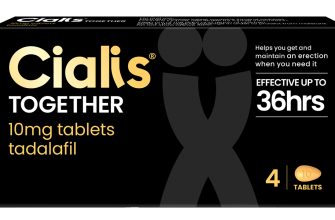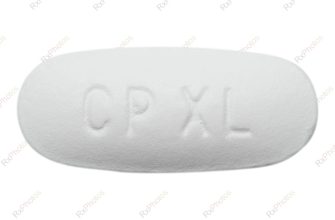Consider taking a vitamin B complex supplement while on amoxicillin. This combination can help restore the balance of beneficial bacteria in your gut, which antibiotics often disrupt. Vitamin B6, in particular, plays a role in supporting your immune system and can enhance your overall well-being during and after antibiotic treatment.
Vitamin C is another excellent addition to your routine when using amoxicillin. This antioxidant helps bolster your immune response and may aid in combating any infections more effectively. Aim for a daily intake of 500 to 1,000 mg of vitamin C, especially during your antibiotic course, to support your body’s natural defenses.
Furthermore, incorporating vitamin D can be beneficial. Research indicates that maintaining adequate vitamin D levels can improve immune function. If you find yourself spending less time outdoors, a daily supplement of 1,000 to 2,000 IU of vitamin D can help maintain optimal levels.
Stay vigilant about hydration. Drinking plenty of water supports kidney function, which is essential when taking any antibiotic. Ensure you are replenishing fluids to help your body clear the medication more effectively.
Finally, always consult a healthcare professional before adding new supplements to your routine, especially when on antibiotics. They can provide personalized recommendations based on your health status and needs.
- Vitamins Amoxicillin: A Comprehensive Guide
- Understanding Amoxicillin and Its Role in Health
- Common Vitamins That Support Amoxicillin Effectiveness
- Vitamin B Complex
- Vitamin A
- Potential Interactions Between Amoxicillin and Vitamins
- Best Vitamins to Take During Amoxicillin Treatment
- Additional Vitamins to Support Antibiotic Treatment
- Tips for Taking Vitamins with Amoxicillin
- How to Optimize Nutrient Absorption While Taking Amoxicillin
- Consulting Healthcare Professionals About Vitamins and Amoxicillin
- Understanding Potential Interactions
- Monitoring Health and Adjustments
Vitamins Amoxicillin: A Comprehensive Guide
Amoxicillin, a widely prescribed antibiotic, targets bacterial infections. Pairing it with specific vitamins can enhance recovery and maintain overall health. Vitamin C plays a significant role in bolstering the immune system, making it a supportive choice during bacterial treatment.
Vitamin B complex, particularly B6, B9 (folate), and B12, can promote healing and energy levels. These vitamins assist in red blood cell production, which is vital for transporting oxygen and nutrients throughout the body, especially during recovery from an infection.
Probiotics should be part of your regimen when taking amoxicillin. Antibiotics can disrupt gut flora, leading to digestive issues. Probiotic-rich foods or supplements help restore balance, reducing the risk of side effects like diarrhea.
Prioritize a balanced diet rich in antioxidants. Foods like fruits and vegetables, nuts, and whole grains top the list. These nutrients enhance cellular repair, mitigate inflammation, and improve overall wellbeing.
Stay hydrated while on amoxicillin. Adequate fluid intake aids kidney function, essential for properly processing medications. Aim to drink water, herbal teas, or broths regularly.
Consult your healthcare provider before adding any vitamins or supplements to your routine. They can give tailored advice based on individual health needs and current medications. Monitoring interactions is crucial for safe and effective treatment.
Understanding Amoxicillin and Its Role in Health
Amoxicillin is widely used to combat bacterial infections. Recognize its effectiveness in treating conditions such as pneumonia, bronchitis, and infections of the ear, nose, throat, urinary tract, and skin.
Here are key points about amoxicillin:
- Mechanism of Action: Amoxicillin inhibits the synthesis of bacterial cell walls, leading to cell death.
- Dosage: Typical dosage varies based on age and condition; follow healthcare provider recommendations carefully.
- Formulations: Available as capsules, tablets, and liquid suspensions, which enhance versatility for different patient needs.
- Side Effects: Possible reactions include nausea, diarrhea, and allergic reactions. Report any severe side effects to a healthcare professional.
- Drug Interactions: Inform your provider about all medications you’re taking to avoid potential interactions.
A proper understanding of amoxicillin includes recognizing the importance of completing the prescribed course, even if symptoms improve. This practice reduces the risk of antibiotic resistance.
Vitamin supplementation may play a supportive role in health during antibiotic treatment. Incorporating vitamins C and D can bolster the immune system and facilitate recovery. Adequate hydration and rest also contribute to overall wellness while on medication.
Consult with a healthcare provider for personalized advice and to address specific health concerns regarding the use of amoxicillin together with vitamin intake.
Common Vitamins That Support Amoxicillin Effectiveness
Vitamin C enhances the immune response, which can aid in fighting infections while on amoxicillin. Incorporate citrus fruits, strawberries, and bell peppers into your diet to boost your vitamin C intake.
Vitamin D plays a role in immune function and can bolster the body’s defenses during antibiotic treatment. Regular sun exposure or foods like fatty fish and fortified dairy products can help maintain optimal levels of this vitamin.
Vitamin B Complex
The B vitamins, particularly B6, B9 (folate), and B12, support cellular functions and energy metabolism. Eating whole grains, legumes, and green leafy vegetables can provide these essential nutrients and enhance your overall health while on medication.
Vitamin A
Vitamin A significantly contributes to maintaining healthy mucous membranes and skin, protecting against infections. Incorporate foods rich in beta-carotene, like carrots, sweet potatoes, and spinach, to support your immune health during antibiotic treatment.
Stay hydrated and consider discussing any supplementation with your healthcare provider to ensure all nutrients are balanced while taking amoxicillin.
Potential Interactions Between Amoxicillin and Vitamins
Taking amoxicillin concurrently with certain vitamins may affect the absorption and efficacy of the antibiotic. For instance, high doses of vitamin C can increase the acidity of urine, potentially enhancing the excretion of amoxicillin and reducing its effectiveness. It’s advisable to monitor vitamin C intake during treatment.
Calcium supplements, often found in multivitamins, can interfere with the absorption of amoxicillin. Whenever possible, space doses of calcium and amoxicillin apart by at least two hours to minimize this interaction.
Some studies suggest that vitamin D may enhance antibiotic effectiveness indirectly by supporting overall immune function. Maintaining adequate vitamin D levels helps the body respond to infections more effectively, although it does not have a direct interaction with amoxicillin.
Vitamin K does not significantly interact with amoxicillin, but antibiotics can sometimes affect gut flora that produces vitamin K. Consider monitoring your vitamin K intake if on long-term antibiotic therapy to avoid any potential imbalances.
Always consult with a healthcare professional before combining amoxicillin with vitamin supplements to avoid unintended effects and to ensure optimal treatment outcomes.
Best Vitamins to Take During Amoxicillin Treatment
Consider incorporating Vitamin C into your regimen during amoxicillin treatment. It supports the immune system and may help your body combat infections more effectively.
Vitamin B6 is another excellent choice as it aids in protein metabolism and supports immune health. It can enhance the body’s response to antibiotics.
Additional Vitamins to Support Antibiotic Treatment
- Vitamin D: Helps modulate the immune response. Low levels can result in a weakened immune system, making it beneficial to ensure adequate intake.
- Zinc: Not a vitamin but a mineral that aids in immune function. It can reduce the duration of illnesses and support overall health during antibiotic use.
- Probiotics: While not a vitamin, they play a vital role in maintaining gut health, especially when taking antibiotics that can disrupt the natural flora.
Tips for Taking Vitamins with Amoxicillin
Timing is essential. Take your vitamins at different times than your amoxicillin dose to enhance absorption and effectiveness. For instance, consider taking vitamins in the morning and the antibiotic later in the day.
Always consult your healthcare provider before adding new supplements to your routine. Individual needs can vary based on health status and conditions.
How to Optimize Nutrient Absorption While Taking Amoxicillin
Take probiotics along with amoxicillin to support gut health and enhance nutrient absorption. Probiotics help restore the balance of beneficial bacteria in your digestive system, which can be disrupted by antibiotics.
Incorporate fermented foods into your diet, such as yogurt, kefir, sauerkraut, and kimchi. These foods contain live cultures that further assist in maintaining gut flora.
Space out the intake of amoxicillin and vitamin supplements to prevent interactions that may hinder absorption. Take antibiotics at least two hours apart from vitamin supplements to maximize their effectiveness.
Opt for foods rich in soluble fiber, like oats, beans, and apples. Soluble fiber slows digestion, allowing for better nutrient absorption.
Avoid excessive consumption of high-fiber foods when taking amoxicillin, as they can interfere with the medication’s efficacy. Maintain a balanced intake to support both digestion and nutrient uptake.
Stay adequately hydrated. Water aids digestion and helps transport nutrients throughout the body. Aim for at least 8 cups of water daily, adjusting for activity level and climate.
Manage stress through relaxation techniques. High-stress levels can impair digestion and absorption. Consider yoga, meditation, or deep-breathing exercises to maintain a calm state.
Consult with a healthcare professional about nutrient supplementation specific to your needs during antibiotic treatment. They can provide guidance tailored to your health status and dietary preferences.
| Tip | Description |
|---|---|
| Probiotics | Helps rebuild gut bacteria disrupted by antibiotics. |
| Fermented Foods | Include yogurt, kefir, and sauerkraut for enhanced gut health. |
| Spacing Supplements | Take vitamins at least two hours apart from amoxicillin. |
| Soluble Fiber | Consume oats, beans, and apples for better digestion. |
| Hydration | Drink sufficient water to aid nutrient transport and digestion. |
| Stress Management | Utilize relaxation techniques to improve digestive health. |
Consulting Healthcare Professionals About Vitamins and Amoxicillin
Always consult a healthcare professional before combining vitamins with amoxicillin. Some vitamins may interact with medications, altering their effectiveness. For instance, high doses of vitamin C could potentially increase the acidity of urine, leading to changes in how amoxicillin is processed by the body.
Understanding Potential Interactions
Your healthcare provider can offer personalized advice regarding specific vitamins. If you are taking supplements such as calcium or iron, discuss how these might interfere with amoxicillin absorption. For example, calcium can hinder the absorption of certain antibiotics, including amoxicillin. Timing your dose of vitamins and antibiotics wisely is crucial.
Monitoring Health and Adjustments
During your treatment, keep track of any symptoms you experience and share them with your healthcare professional. They may suggest adjustments to your vitamin intake based on your individual health needs and the specific antibiotic regimen you follow. Regular follow-ups ensure that both your nutritional status and antibiotic efficacy are safeguarded.
Open communication with your healthcare provider leads to informed decisions regarding both vitamins and medications like amoxicillin. Your health is a priority; never hesitate to seek guidance tailored to your circumstances.










